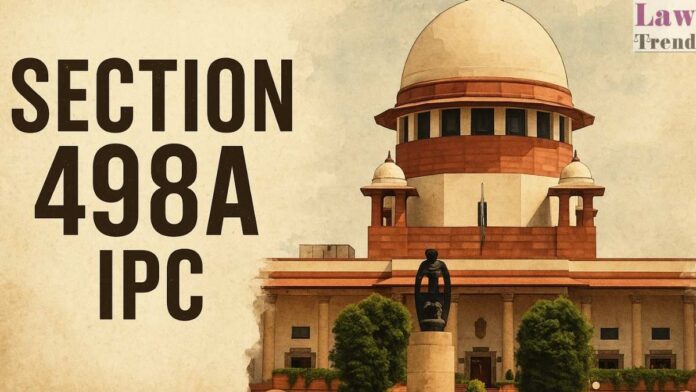The Supreme Court of India has quashed criminal proceedings against the father-in-law, mother-in-law, and sister-in-law of a complainant, ruling that the First Information Report (FIR) lodged against them contained vague, general, and omnibus allegations that did not establish a prima facie case for offences under Sections 498-A, 377, and 506 of the Indian Penal Code,

To Read More Please Subscribe to VIP Membership for Unlimited Access to All the Articles, Download Available Copies of Judgments/Order, Acess to Central/State Bare Acts, Advertisement Free Content, Access to More than 4000 Legal Drafts( Readymade Editable Formats of Suits, Petitions, Writs, Legal Notices, Divorce Petitions, 138 Notices, Bail Applications etc.) in Hindi and English.
Click to Subscribe
If you are already a VIP Member, Click to Login Now
READ ALSO Eknath Shinde govt formed in Maharashtra due to SC orders: Uddhav faction tells apex court




